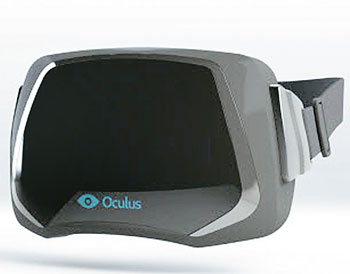- California Assembly OKs highest minimum wage in nation
- S. Korea unveils first graphic cigarette warnings
- US joins with South Korea, Japan in bid to deter North Korea
- LPGA golfer Chun In-gee finally back in action
- S. Korea won’t be top seed in final World Cup qualification round
- US men’s soccer misses 2nd straight Olympics
- US back on track in qualifying with 4-0 win over Guatemala
- High-intensity workout injuries spawn cottage industry
- CDC expands range of Zika mosquitoes into parts of Northeast
- Who knew? ‘The Walking Dead’ is helping families connect
Oculus Rift’s impact on marketing and technology
 Virtual reality is set to change the avenues of marketing and technology. Oculus Rift users will be able to download and consume content, advertisements, and marketing images/videos, in the comfort of their own homes.
Virtual reality is set to change the avenues of marketing and technology. Oculus Rift users will be able to download and consume content, advertisements, and marketing images/videos, in the comfort of their own homes.
Simply relying on online banners and display advertisements isn’t enough, and the goal is leaning heavily towards engagement. In this case, Oculus Rift, a virtual reality headset, will change the way all content is absorbed. Marketers will be able to show their best content and the chase for user engagement will be on in the coming years.
This seems to be a strategy that other marketers are actively employing, or planning to, at least in the near future. Red Bull and GoPro have already distinguished themselves by providing high quality, lifestyle video content. Other companies are slowly catching on to their strategies. People who watch these videos are engaged by the first person viewpoints -hey feel as if they are in the video.
Regardless, betting on virtual reality technology is still a risky move. The latest Oculus Rift headset(Development Kit 2) costs $350.
No official release date has been set for the consumer version, although it’s rumored to be sometime in 2015. This means that the number of people, who actually own an Oculus Rift headset, is quite limited.
Keep in mind that current videos that are set to display on Oculus Rift require an immense amount of hard-drive space. For example, Mountain Dew tested a virtual reality concept video that allowed users to skate alongside others in a simulation experience.
The bad news: it required so much hard-drive space that it required a special, high-powered computer.
Despite the risks, Mountain Dew and others, hope that they are getting ahead of others by creating something new. In other words, they’re gambling on virtual reality.
From a marketing standpoint, it makes sense because user engagement follows technological trends. Obviously, smartphones, tablets, and other instant mediums have changed the game of advertising. It’s still too early to tell, but let’s not forget that Facebook purchased Oculus Rift for $2 billion last year. That’s something worth remembering.
 |
Chang Ho Lee North Hollywood HGM 12th Grade |














David Oh
January 20, 2015 at 4:25 PM
Great article Chang. I’m impressed you’re only in the 12th grade. Keep up the good work. You should also check out what Leap Motion is doing.
Pingback: Oculus Rift对市场营销与技术的冲击 | Yivian
an
January 21, 2015 at 11:59 AM
The video may have required a lot of HDD space, but that wouldn’t have been a reason to bring in a high powered computer.
Digital Marketing Company London
August 29, 2017 at 12:01 PM
The world has become digitalized. People fill most of their time surfing the internet. With respect to this point, Digital Marketing Company London came into existence. It is nothing but using the internet in various ways to promote a product or service and to reach more number of people in less time. The intuitions of the peoples are gathered to get a clear understanding with blended gratitude. This procedure makes it possible to get one platform to sell and buy and to get connected to the public globally.
kelly
November 27, 2017 at 1:27 PM
yes..I like the basic concepts behind Second Life but it seems incredibly outdated and when I played it was intensely non-intuitive / user friendly to an extent that made EVE look like a game for toddlers. thanks from
togel online